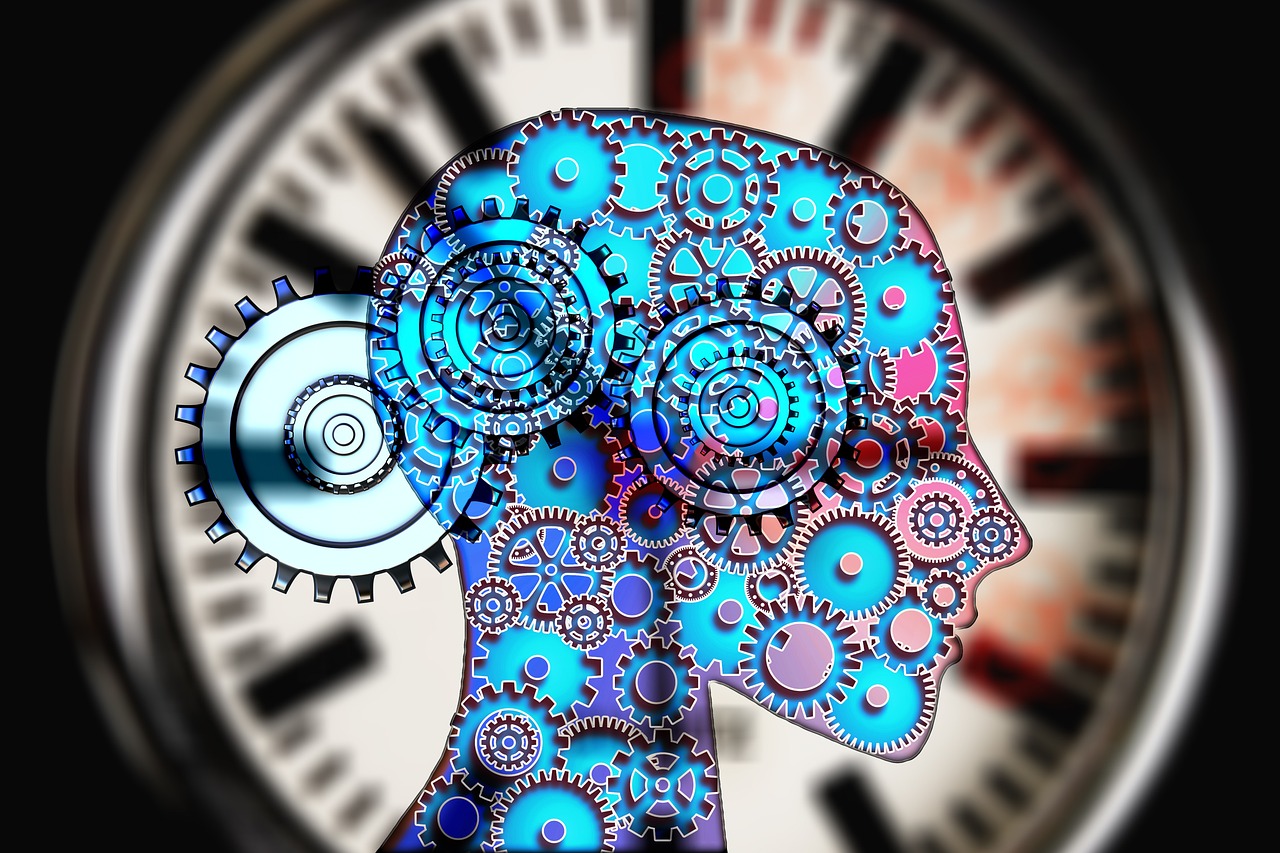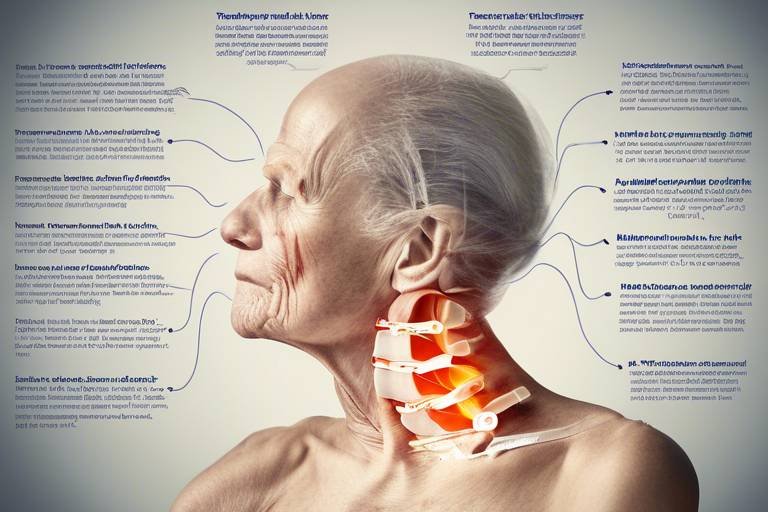Recent Discoveries in Forensic Psychology
Forensic psychology is a fascinating field that sits at the intersection of psychology and the legal system. Recent discoveries in this dynamic area are not just reshaping how we understand criminal behavior; they are also influencing the way justice is served. From innovative assessment techniques to the integration of cutting-edge technology, forensic psychology is evolving at a breakneck pace. Imagine a world where understanding the mind of a criminal is as precise as predicting the weather—this is the promise that recent advancements in forensic psychology hold.
One of the most exciting aspects of these discoveries is the way they enhance the accuracy and reliability of psychological evaluations. For instance, traditional methods of assessing a suspect's mental state or a witness's credibility can be subjective and prone to bias. However, with the advent of new assessment tools, forensic psychologists are now able to gather data that is not only more objective but also more nuanced. This means that the insights derived from these evaluations can lead to more just outcomes in the courtroom.
Moreover, the role of technology in forensic psychology cannot be overstated. The integration of artificial intelligence (AI) and machine learning is revolutionizing how data is collected and analyzed. Imagine having a digital assistant that can sift through mountains of evidence and identify patterns that would take humans weeks, if not months, to uncover. This is not just a dream; it’s becoming a reality in forensic psychology. The implications are profound, as these technologies can lead to quicker, more informed decisions in investigations and trials.
In addition to AI, neuroimaging techniques like functional Magnetic Resonance Imaging (fMRI) and Positron Emission Tomography (PET) scans are being employed to explore the inner workings of the criminal mind. These tools allow psychologists to visualize brain activity in real-time, providing insights into the mental states of suspects and witnesses. Imagine being able to see which parts of the brain light up when someone recalls a traumatic event or when they lie. This kind of information can be invaluable in legal settings, but it also raises ethical questions that must be carefully navigated.
As we delve deeper into these recent advancements, it becomes clear that forensic psychology is not just about understanding crime; it’s about understanding humanity. Each discovery brings us one step closer to unraveling the complexities of human behavior, which can ultimately lead to better prevention and intervention strategies. The future of forensic psychology is bright, and it is essential for professionals in the field to stay informed about these developments to ensure they are applied ethically and effectively.
- What is forensic psychology? Forensic psychology is the application of psychological principles and practices within the legal and criminal justice system.
- How has technology impacted forensic psychology? Technology has introduced new tools and methods for data collection, analysis, and assessment, enhancing the overall effectiveness of forensic psychology.
- What are some recent advancements in forensic psychology? Recent advancements include neuroimaging techniques, artificial intelligence applications, and innovative risk assessment tools.
- Why are ethical considerations important in forensic psychology? Ethical considerations are crucial to protect the rights and privacy of individuals involved in legal proceedings and to ensure that psychological practices are not misused.

The Role of Forensic Psychology in Criminal Justice
Forensic psychology is like the bridge that connects two seemingly different worlds: the intricate realm of psychology and the structured domain of law. Imagine standing at the edge of a river, where one side represents the complexities of human behavior and the other embodies the strict rules and regulations of the legal system. Forensic psychologists are the skilled navigators who traverse this bridge, bringing invaluable insights that influence various stages of the criminal justice process.
In the context of criminal justice, forensic psychology plays a critical role in multiple areas, including investigations, trials, and rehabilitation. When a crime occurs, law enforcement agencies often rely on forensic psychologists to help understand the motivations behind criminal behavior. By analyzing psychological profiles, these professionals can assist in identifying potential suspects and predicting their actions. This is particularly useful in cases involving serial offenders, where understanding the psyche can lead to quicker apprehensions.
During trials, forensic psychologists provide expert testimony that can clarify complex psychological concepts for judges and juries. They assess the mental state of defendants, helping to determine whether an individual was sane at the time of the crime. This assessment can significantly impact verdicts and sentencing. For instance, if a defendant is found to be suffering from a severe mental illness, they may be deemed not guilty by reason of insanity, leading to a different form of punishment focused on treatment rather than incarceration.
Moreover, the role of forensic psychology extends beyond the courtroom. Rehabilitation is another crucial area where these professionals contribute. By understanding the psychological underpinnings of criminal behavior, forensic psychologists can develop tailored intervention programs aimed at reducing recidivism rates. These programs often involve therapeutic techniques that address underlying issues such as trauma, addiction, or personality disorders.
As we delve deeper into the significance of forensic psychology, it’s essential to recognize the methodologies employed in this field. Forensic psychologists utilize a variety of assessment tools and techniques to evaluate individuals involved in the criminal justice system. This includes structured interviews, psychological testing, and behavioral assessments. The outcome of these evaluations can provide a clearer picture of an individual's mental health and potential risks, ultimately guiding legal decisions.
In summary, forensic psychology is an indispensable component of the criminal justice system. It not only aids in the understanding of criminal behavior but also enhances the legal processes that govern our society. As technology and methodologies continue to evolve, the impact of forensic psychology is likely to grow, making it an exciting field to watch.
- What is forensic psychology? Forensic psychology is the intersection of psychology and the legal system, focusing on understanding criminal behavior and providing expert analysis in legal contexts.
- How do forensic psychologists assist law enforcement? They help in profiling suspects, understanding motivations behind crimes, and providing insights that can lead to quicker arrests.
- What role do forensic psychologists play during trials? They provide expert testimony on the mental state of defendants and assist in determining sanity at the time of the crime.
- Can forensic psychology help reduce recidivism? Yes, by developing tailored rehabilitation programs that address psychological issues, forensic psychologists aid in reducing the likelihood of re-offending.

Innovative Assessment Techniques
In recent years, forensic psychology has witnessed a seismic shift in how assessments are conducted. Gone are the days of relying solely on traditional interviews and paper-based tests. Today, are paving the way for more accurate evaluations of suspects and witnesses, ultimately leading to more just outcomes in the legal system. These advancements not only enhance the reliability of results but also provide a deeper understanding of the complexities of human behavior.
One of the most exciting developments in this field is the integration of technology into assessment methodologies. For instance, the use of computerized assessment tools allows psychologists to gather data more efficiently and effectively. These tools can analyze responses in real-time, offering immediate insights that can shape investigative strategies. Furthermore, the incorporation of standardized measures ensures that assessments are not only consistent but also comparable across different cases.
Another groundbreaking approach is the application of behavioral assessments, which focus on observable actions rather than self-reported feelings or thoughts. This method helps to mitigate biases that can arise from personal accounts, providing a more objective view of an individual's mental state. For example, forensic psychologists may observe how a suspect reacts in various scenarios, assessing their emotional responses and decision-making processes under pressure. This technique can reveal underlying traits that traditional assessments might overlook.
Moreover, the advent of virtual reality (VR) has opened new avenues for immersive assessments. By simulating real-life situations, forensic psychologists can evaluate how individuals respond to stressors and challenges in a controlled environment. This not only provides valuable data but also allows for a more engaging and less intimidating experience for the subjects involved. Imagine a suspect being placed in a virtual crime scene; their reactions could reveal critical insights into their psychological profile.
Furthermore, neuropsychological assessments have become increasingly prevalent in forensic psychology. These assessments delve into the cognitive functions of individuals, helping to determine whether mental impairments or disorders may have influenced their behavior. Techniques such as cognitive testing and memory assessments can provide a clearer picture of a suspect's mental state at the time of the crime, influencing legal outcomes significantly.
As we embrace these innovative assessment techniques, it's crucial to consider their implications. While they offer enhanced accuracy and insights, they also raise questions about ethics and privacy. How do we ensure that these advanced methods are used responsibly? The answer lies in establishing robust ethical guidelines that govern their application, ensuring that the rights of individuals are protected while still advancing the field of forensic psychology.
In conclusion, the landscape of forensic psychology is evolving rapidly, with innovative assessment techniques transforming how we understand criminal behavior. By leveraging technology and new methodologies, forensic psychologists are better equipped to provide accurate evaluations that can significantly impact the criminal justice system. As we move forward, it will be essential to balance innovation with ethical considerations, ensuring that we use these tools to promote justice and understanding.
- What are the latest assessment techniques in forensic psychology? Recent advancements include computerized tools, behavioral assessments, virtual reality simulations, and neuropsychological evaluations.
- How does technology improve forensic assessments? Technology enhances the efficiency, accuracy, and objectivity of assessments, providing real-time insights and reducing biases.
- What ethical concerns arise from innovative assessment methods? Ethical concerns include privacy issues, consent, and the potential misuse of advanced techniques in legal settings.
- Can virtual reality be used in forensic psychology? Yes, virtual reality is being used to simulate real-life situations for more immersive and objective assessments.

Neuroimaging in Forensic Psychology
Neuroimaging has emerged as a groundbreaking tool in the realm of forensic psychology, providing an unprecedented glimpse into the inner workings of the human brain. Techniques such as functional Magnetic Resonance Imaging (fMRI) and Positron Emission Tomography (PET) are not just buzzwords; they are revolutionizing how we understand criminal behavior and mental health issues. Imagine being able to visualize thoughts and emotions as they occur in real-time, which allows forensic psychologists to delve deeper into the motivations behind criminal acts. This technology enhances the traditional methods of psychological evaluation, making it possible to uncover hidden patterns that would otherwise remain obscured.
One of the most fascinating aspects of neuroimaging is its ability to identify specific brain activity associated with various psychological states. For instance, studies have shown that certain areas of the brain light up when individuals are experiencing fear, aggression, or even remorse. By utilizing these insights, forensic psychologists can better assess a suspect's mental state at the time of a crime. This not only aids in understanding the criminal mind but also plays a crucial role in determining competency to stand trial and the potential for rehabilitation.
However, the use of neuroimaging in forensic settings is not without its controversies. Ethical considerations abound, particularly regarding privacy and consent. Should individuals undergoing evaluation have the right to refuse neuroimaging? What happens if the data collected is misused? These questions highlight the need for strict ethical guidelines to govern the use of such powerful technology. Forensic psychologists must navigate these murky waters carefully, ensuring that their practices uphold the dignity and rights of all individuals involved.
Several high-profile cases have showcased the potential of neuroimaging in influencing legal outcomes. For example, in a landmark case, neuroimaging was used to demonstrate that a defendant's brain function was significantly impaired due to a traumatic brain injury. This evidence played a pivotal role in the jury's decision, leading to a verdict that considered the defendant's mental state rather than solely the crime committed. Such cases illustrate the profound impact that neuroimaging can have on legal proceedings, often swaying the course of justice.
As we continue to explore the intersection of neuroscience and law, neuroimaging stands out as a beacon of potential. It offers a unique lens through which we can view the complexities of human behavior, ultimately leading to more informed decisions in the criminal justice system. The future of forensic psychology may very well depend on our ability to harness these technologies responsibly and ethically.
- What is neuroimaging? Neuroimaging refers to various techniques used to visualize the structure and function of the brain, including fMRI and PET scans.
- How does neuroimaging help in forensic psychology? It helps forensic psychologists understand the mental states of suspects and witnesses, providing insights into their behavior and motivations.
- Are there ethical concerns with using neuroimaging? Yes, issues related to privacy, consent, and the potential misuse of brain data are significant ethical considerations in this field.
- Can neuroimaging influence legal outcomes? Absolutely, as seen in various high-profile cases where neuroimaging evidence has swayed jury decisions and sentencing.

Ethical Considerations in Neuroimaging
As the field of forensic psychology continues to evolve with the integration of advanced neuroimaging techniques, it is crucial to address the ethical considerations that accompany these technologies. Neuroimaging methods, such as fMRI (functional Magnetic Resonance Imaging) and PET (Positron Emission Tomography) scans, provide profound insights into the brain's functioning and can reveal underlying mental states associated with criminal behavior. However, this capability raises significant ethical dilemmas that professionals must navigate carefully.
One major concern is the issue of privacy. Neuroimaging can expose sensitive information about an individual's mental health and cognitive processes, leading to potential misuse of this data in legal contexts. For instance, if brain scans are used to determine a defendant's mental state during a trial, the implications of such evidence could unfairly influence a jury's perception. This raises the question: how much of our mental landscape should be exposed in a court of law?
Moreover, the question of informed consent is paramount. Individuals undergoing neuroimaging must fully understand what the procedure entails, including how their data will be used. In many cases, defendants may not be in a position to provide informed consent due to the pressures of legal proceedings. This creates a complex ethical landscape where the rights of the individual may be compromised for the sake of legal clarity.
Another critical issue is the potential for misinterpretation of neuroimaging results. While these technologies can provide valuable information, they are not infallible. Misreading a brain scan could lead to wrongful conclusions about a person's mental state or intentions. Therefore, it is essential for forensic psychologists to approach neuroimaging results with a healthy dose of skepticism and to consider them as part of a broader assessment rather than definitive proof.
To further elaborate on these ethical considerations, let's examine some key points:
- Privacy Concerns: The risk of sensitive information being disclosed or misused.
- Informed Consent: Ensuring individuals understand the implications of undergoing neuroimaging.
- Data Misinterpretation: The possibility of incorrect conclusions drawn from neuroimaging results.
- Potential Bias: The risk of biases influencing the interpretation of neuroimaging data.
In conclusion, while neuroimaging offers exciting possibilities for understanding criminal behavior, the ethical implications cannot be overlooked. As forensic psychologists embrace these technologies, it is imperative to establish clear guidelines that protect individual rights while also ensuring that the legal system benefits from the insights that neuroimaging can provide. Balancing these ethical considerations will be key to the responsible integration of neuroimaging in forensic psychology.
- What is neuroimaging in forensic psychology? Neuroimaging refers to techniques like fMRI and PET scans used to visualize brain activity and understand mental states related to criminal behavior.
- Why are ethical considerations important in neuroimaging? Ethical considerations are crucial to protect individual rights, ensure informed consent, and prevent misuse of sensitive data.
- How can neuroimaging impact legal proceedings? Neuroimaging can provide insights into a defendant's mental state, potentially influencing jury decisions and sentencing outcomes.

Case Studies Utilizing Neuroimaging
Neuroimaging has become a revolutionary tool in forensic psychology, providing unprecedented insights into the complexities of the human mind. Several high-profile cases have showcased the power of this technology, influencing not only verdicts but also the understanding of criminal behavior. One notable case involved a defendant accused of a violent crime who underwent functional Magnetic Resonance Imaging (fMRI). The results revealed abnormal brain activity in areas associated with impulse control and aggression. This evidence was pivotal in arguing that the defendant's actions were significantly influenced by underlying neurological issues rather than mere criminal intent.
Another compelling example is the case of a serial offender, where Positron Emission Tomography (PET) scans were utilized to assess brain function. The findings indicated reduced activity in the prefrontal cortex, an area crucial for decision-making and social behavior. This neuroimaging evidence was instrumental in the trial, as it provided a biological basis for the offender's violent tendencies, leading to a more nuanced understanding of his actions and ultimately influencing the sentencing phase.
Furthermore, neuroimaging has been employed in cases of insanity defense, where defendants argue that they were not in a sound mental state during the commission of their crimes. In one such case, the use of neuroimaging helped establish a connection between the defendant's brain abnormalities and their erratic behavior at the time of the offense. This evidence not only supported the insanity plea but also sparked discussions on the ethics of using brain scans in legal contexts, raising questions about how much weight should be given to biological findings in determining culpability.
The implications of these case studies are profound. They demonstrate that neuroimaging can provide a clearer picture of the mental states of individuals involved in the legal system. However, it also emphasizes the need for rigorous ethical standards when interpreting and presenting such data in court. As forensic psychologists continue to integrate neuroimaging into their assessments, the legal system must adapt to these advancements, ensuring that justice is served while also considering the complexities of human psychology.
- What is neuroimaging in forensic psychology?
Neuroimaging refers to the use of advanced imaging technologies, such as fMRI and PET scans, to visualize brain activity and structure, helping forensic psychologists understand mental states related to criminal behavior. - How does neuroimaging impact legal proceedings?
Neuroimaging can provide crucial evidence regarding a defendant's mental state, potentially influencing verdicts and sentencing, especially in cases involving mental illness or impulse control issues. - What are the ethical concerns surrounding neuroimaging?
Ethical concerns include issues of privacy, consent, and the potential for misuse of brain data, which necessitate careful consideration by forensic psychologists and legal professionals.

Advancements in Risk Assessment
In recent years, the field of forensic psychology has witnessed remarkable methodologies. These improvements are not merely incremental; they represent a paradigm shift in how professionals evaluate the potential for violent behavior among individuals. Traditionally, risk assessment relied heavily on subjective judgments, often leading to inconsistent outcomes. However, the introduction of standardized tools and evidence-based practices has significantly enhanced the reliability and validity of assessments.
One of the most notable advancements is the development of structured professional judgment (SPJ) tools. These tools provide a comprehensive framework that integrates clinical expertise with empirical data, allowing psychologists to make more informed decisions. For instance, the HCR-20 (Historical, Clinical, Risk Management-20) is one such tool that has gained traction in both clinical and forensic settings. It evaluates historical factors, clinical symptoms, and risk management strategies to produce a nuanced risk profile. This structured approach ensures that all relevant factors are considered, thus minimizing bias and enhancing the accuracy of predictions.
Moreover, the advent of dynamic risk factors has transformed our understanding of how risk can change over time. Unlike static factors, which remain constant, dynamic factors can fluctuate based on an individual's circumstances, such as their mental health status or social support systems. By focusing on these mutable elements, psychologists can provide more timely interventions that may mitigate risk. For example, if a person shows signs of increased aggression due to stressors in their life, timely therapeutic interventions can be implemented to address these issues before they escalate into violence.
Another groundbreaking development is the integration of statistical modeling and actuarial methods into risk assessment. These methods utilize large datasets to identify patterns and correlations that may not be immediately apparent through traditional assessment techniques. By applying statistical analyses, forensic psychologists can develop predictive algorithms that forecast the likelihood of future violent behavior with greater accuracy. This data-driven approach not only enhances the credibility of assessments but also aids law enforcement and mental health professionals in making informed decisions regarding intervention and management.
Despite these advancements, it's crucial to recognize the limitations and ethical considerations surrounding risk assessment. The reliance on predictive tools must be balanced with a thorough understanding of individual circumstances. Over-reliance on algorithms can lead to stigmatization and misinterpretation of individuals' behaviors. Therefore, a collaborative approach that combines quantitative data with qualitative insights from clinical evaluations is essential to ensure fair and just outcomes.
As forensic psychology continues to evolve, the integration of these advancements in risk assessment will undoubtedly play a pivotal role in enhancing public safety and improving rehabilitation efforts. By employing a multifaceted approach that includes structured judgment, dynamic factors, and statistical modeling, professionals can better navigate the complexities of human behavior and contribute to a more effective criminal justice system.
- What is risk assessment in forensic psychology? Risk assessment involves evaluating an individual's potential for violent behavior using various tools and methodologies.
- How have advancements improved risk assessment? Advancements include structured professional judgment tools, dynamic risk factors, and statistical modeling, leading to more accurate and reliable assessments.
- What are dynamic risk factors? Dynamic risk factors are elements that can change over time, such as mental health status or social support, influencing an individual's risk profile.
- Why is ethical consideration important in risk assessment? Ethical considerations are crucial to prevent bias and ensure that individuals are treated fairly, avoiding stigmatization based on predictive assessments.

The Impact of Technology on Forensic Psychology
In recent years, technology has become a game-changer in the field of forensic psychology, reshaping how professionals approach criminal investigations, assessments, and interventions. The integration of cutting-edge tools and methodologies has not only enhanced the accuracy of psychological evaluations but has also opened up new avenues for understanding the complexities of criminal behavior. Imagine a world where psychological profiles can be generated at lightning speed, or where evidence can be analyzed with unprecedented precision—this is the reality we are stepping into.
One of the most profound impacts of technology in forensic psychology is the use of artificial intelligence (AI). AI algorithms are being employed to analyze vast amounts of data, identifying patterns that human analysts might overlook. This capability is particularly useful in profiling suspects, where machine learning models can predict behaviors based on historical data. For instance, AI can sift through thousands of case files, extracting relevant psychological traits and behavioral patterns that could indicate a potential risk for violent behavior. The result? A more informed approach to prevention and intervention strategies.
Moreover, the rise of predictive analytics has added another layer of sophistication to forensic psychology. By utilizing statistical techniques and machine learning, professionals can make predictions about future behaviors based on past incidents. This is not just about crunching numbers; it’s about understanding the nuances of human behavior in a way that was previously unimaginable. For example, predictive models can help law enforcement agencies allocate resources more effectively, ensuring that they are prepared for potential hotspots of criminal activity.
Another significant advancement is the incorporation of digital evidence into forensic psychology. As our lives become increasingly intertwined with technology, understanding the psychological implications of digital behavior is crucial. Cyberpsychology, a subfield that examines the interaction between human behavior and technology, is gaining traction. Forensic psychologists are now tasked with analyzing online behaviors, social media interactions, and digital footprints to gather insights into a suspect's mindset. This shift emphasizes the importance of adapting traditional psychological principles to modern contexts.
To illustrate the impact of technology on forensic psychology, let's consider a few key areas:
| Technology | Impact on Forensic Psychology |
|---|---|
| Artificial Intelligence | Enhanced profiling and risk assessment through data analysis. |
| Predictive Analytics | Improved predictions of violent behavior and resource allocation. |
| Digital Evidence | Insights into online behavior and its psychological implications. |
However, with these advancements come challenges. The use of technology in forensic psychology raises important questions about privacy and ethical considerations. For instance, how do we ensure that the data collected is used responsibly? What safeguards are in place to protect individuals’ rights? As forensic psychologists embrace technology, they must also navigate the ethical landscape that accompanies it. This balance between innovation and ethical responsibility will be crucial in shaping the future of the field.
In summary, the impact of technology on forensic psychology is profound and multifaceted. From AI-driven analyses to the exploration of cyberpsychology, these advancements are transforming how we understand and address criminal behavior. As we continue to integrate technology into forensic practices, it is essential to remain vigilant about the ethical implications, ensuring that the pursuit of knowledge does not come at the expense of individual rights.
- What role does AI play in forensic psychology? AI assists forensic psychologists in analyzing data and identifying patterns that can inform profiling and risk assessments.
- How has digital evidence changed forensic psychology? Digital evidence allows psychologists to understand online behaviors, providing insights into suspects' mental states and motivations.
- What ethical considerations arise from using technology in forensic psychology? Key concerns include privacy, consent, and the potential misuse of data, which require careful management by professionals.

AI and Predictive Analytics
Artificial Intelligence (AI) and predictive analytics are making waves in the field of forensic psychology, transforming how we understand and prevent criminal behavior. Imagine having a tool that can analyze vast amounts of data and identify patterns in human behavior that are often invisible to the naked eye. This is precisely what AI brings to the table. By processing data from various sources, including criminal records, social media interactions, and even psychological evaluations, AI can help forensic psychologists predict potential criminal activities before they happen. It’s like having a crystal ball that doesn’t just show the future but also provides insights into the ‘why’ behind certain behaviors.
One of the most exciting aspects of AI in forensic psychology is its ability to enhance profiling techniques. Traditional profiling often relies on subjective interpretations of behavior, which can lead to biases and inaccuracies. However, with AI, we can leverage algorithms that analyze historical data to create more objective profiles based on statistical probabilities. This not only helps in identifying potential suspects but also in understanding the underlying psychological factors that contribute to criminal behavior. For instance, AI systems can evaluate the likelihood of reoffending by analyzing factors such as age, criminal history, and even psychological assessments.
Moreover, predictive analytics can significantly improve resource allocation for law enforcement agencies. By identifying hotspots for certain types of crimes, police departments can deploy their resources more effectively. For example, if data shows a spike in burglaries in a specific neighborhood, law enforcement can increase patrols in that area, potentially deterring criminal activity before it occurs. This proactive approach is much more effective than the reactive strategies that have been the norm in the past.
However, as with any powerful tool, the use of AI in forensic psychology comes with its own set of challenges. One major concern is the potential for algorithmic bias. If the data used to train AI systems is biased, the outcomes can perpetuate existing inequalities in the criminal justice system. For instance, if historical data reflects over-policing in certain communities, AI might unfairly target those areas in its predictions. Therefore, it’s crucial for forensic psychologists and law enforcement agencies to work together to ensure that the data used is comprehensive and representative.
In addition, ethical considerations must be at the forefront of any AI implementation in forensic psychology. Issues of privacy, consent, and the potential misuse of data must be carefully navigated. For example, individuals may not be comfortable with their social media activity being analyzed to predict their likelihood of committing a crime. Transparency in how data is collected, analyzed, and used is essential to maintain public trust in these technologies.
Ultimately, the integration of AI and predictive analytics into forensic psychology holds immense promise. As we continue to refine these technologies and address the ethical challenges they present, we could see a significant shift in how we approach crime prevention and intervention strategies. The future of forensic psychology is not just about understanding criminal behavior; it’s about leveraging technology to create safer communities and more effective legal systems.
- What is AI in forensic psychology? AI in forensic psychology refers to the use of artificial intelligence technologies to analyze data and predict criminal behavior, enhancing profiling and prevention strategies.
- How does predictive analytics work? Predictive analytics uses historical data and statistical algorithms to identify patterns and predict future outcomes, such as the likelihood of reoffending.
- What are the ethical concerns with AI in forensic psychology? Ethical concerns include algorithmic bias, privacy issues, and the potential misuse of data, which necessitate careful consideration and transparency.

Digital Evidence and Forensic Psychology
In today's fast-paced digital world, the intersection of forensic psychology and digital evidence is becoming increasingly significant. As technology evolves, so does the way we understand and analyze criminal behavior. Digital evidence encompasses a wide range of information, from emails and social media interactions to digital footprints left on various platforms. This information can provide crucial insights into a suspect's motives, state of mind, and even their connections to other individuals involved in a crime.
One of the most fascinating aspects of digital evidence is its ability to paint a detailed picture of a person's behavior over time. For instance, forensic psychologists can analyze a suspect's online activity to determine patterns that might indicate criminal intent. This analysis can include the types of websites visited, the timing of online interactions, and even the language used in communications. By examining these factors, psychologists can develop a more comprehensive understanding of the suspect's psychological profile, which can be instrumental during investigations and legal proceedings.
Moreover, the rise of cyberpsychology—the study of how technology affects human behavior—has opened new doors in forensic psychology. Cyberpsychologists are now able to explore how individuals interact with digital environments and how these interactions may correlate with real-world behaviors. This is particularly relevant in cases involving cybercrime, where understanding the psychological motivations behind online actions can lead to more effective prevention strategies.
However, the use of digital evidence in forensic psychology is not without its challenges. Issues such as privacy, consent, and the potential for data manipulation raise ethical questions that professionals must navigate carefully. For instance, when collecting digital evidence, it's crucial to ensure that the rights of individuals are respected and that the data is obtained lawfully. Failure to do so can jeopardize legal proceedings and undermine the integrity of the evidence.
To illustrate the impact of digital evidence on forensic psychology, consider a recent case involving cyberbullying. In this case, investigators utilized digital evidence from social media platforms to track the interactions between the victim and the perpetrator. By analyzing the tone and content of messages exchanged, forensic psychologists were able to provide valuable insights into the psychological dynamics at play, ultimately aiding in the prosecution of the offender. This example highlights how digital evidence can not only support legal arguments but also enhance our understanding of complex psychological phenomena.
As we look to the future, it's clear that the integration of digital evidence into forensic psychology will continue to evolve. With advancements in technology, such as machine learning algorithms capable of analyzing vast amounts of data, forensic psychologists will have access to tools that can uncover patterns and insights previously thought impossible. This evolution will not only improve the accuracy of psychological assessments but also enhance the effectiveness of interventions aimed at preventing criminal behavior.
In conclusion, the relationship between digital evidence and forensic psychology is a dynamic and exciting field that is set to grow in importance. As we continue to navigate the complexities of the digital age, understanding how technology influences human behavior will be crucial for both legal professionals and mental health experts alike.
- What is digital evidence? Digital evidence refers to any information stored or transmitted in digital form that can be used in a legal context, including emails, social media posts, and digital footprints.
- How does digital evidence impact forensic psychology? Digital evidence provides critical insights into a suspect's behavior and psychological state, aiding in investigations and legal proceedings.
- What ethical concerns are associated with digital evidence? Ethical concerns include issues of privacy, consent, and the potential for data manipulation, which must be carefully managed by professionals.
- What is cyberpsychology? Cyberpsychology is the study of how technology affects human behavior, particularly in the context of online interactions and digital environments.
Frequently Asked Questions
- What is forensic psychology?
Forensic psychology is the intersection of psychology and the legal system. It involves applying psychological principles to legal issues, including criminal investigations, court proceedings, and rehabilitation of offenders. Essentially, forensic psychologists help to understand the mental state of individuals involved in legal matters.
- How does neuroimaging contribute to forensic psychology?
Neuroimaging techniques, like fMRI and PET scans, provide insights into the brain's functioning and can reveal underlying psychological conditions. This technology helps forensic psychologists assess criminal behavior and mental states, potentially influencing legal outcomes by presenting scientific evidence regarding a defendant's mental health.
- What ethical concerns are associated with neuroimaging in legal settings?
There are significant ethical considerations surrounding neuroimaging, such as issues of privacy, consent, and the potential misuse of brain data. Forensic psychologists must navigate these complexities to ensure that the use of such technology adheres to ethical standards while protecting the rights of individuals involved in legal proceedings.
- What advancements have been made in risk assessment tools?
Recent developments in risk assessment tools have enhanced the ability to predict violent behavior accurately. These tools assist law enforcement and mental health professionals in evaluating risks and making informed decisions regarding interventions, ultimately improving public safety and rehabilitation efforts.
- How is artificial intelligence used in forensic psychology?
Artificial intelligence (AI) and predictive analytics are being harnessed to identify patterns in criminal behavior. By analyzing vast amounts of data, AI can help forensic psychologists develop more effective prevention strategies and interventions, paving the way for a more proactive approach to crime reduction.
- What role does digital evidence play in forensic psychology?
The integration of digital evidence has transformed forensic psychology, highlighting the importance of cyberpsychology in understanding criminal behavior in the digital age. Analyzing digital footprints, social media interactions, and online activities can provide valuable insights into an individual's motives and actions.



















